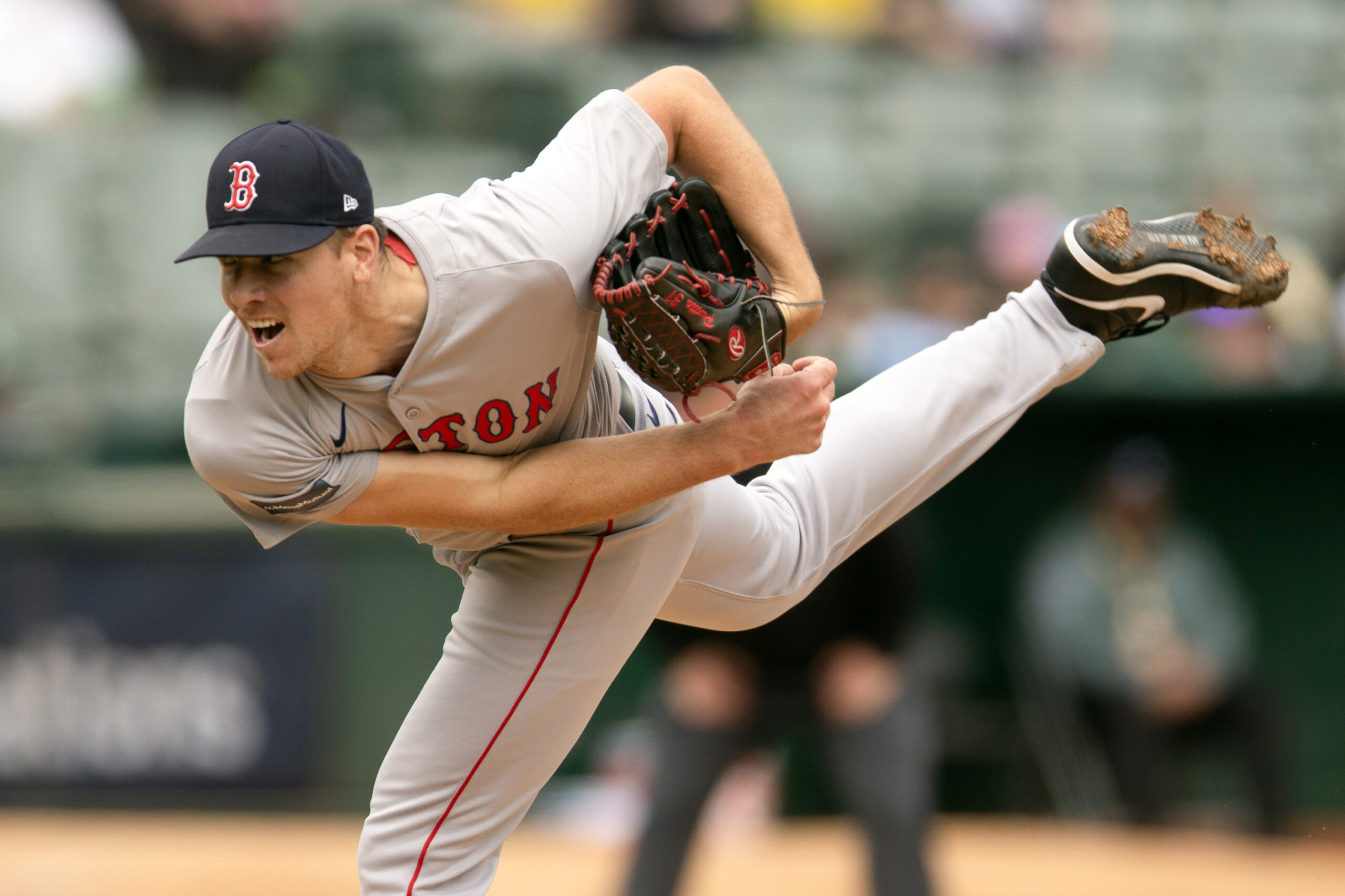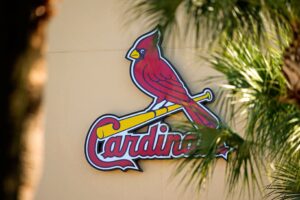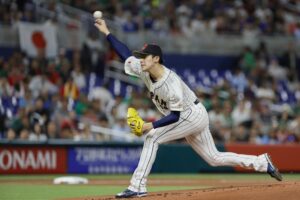It’s the second week of April, and the Boston Red Sox have just four starting pitchers in their rotation. Injuries to veterans like Lucas Giolito and Nick Pivetta have depleted an already thin and unproven unit. While many expected Boston to take advantage of Jordan Montgomery‘s lengthy stay in free agency, the team passed and chose to trust its internal depth.
That limited depth will be tested with Giolito out for the year and Pivetta down for at least two weeks. While Pivetta’s right flexor strain sounds serious, Chief Baseball Officer Craig Breslow told reporters that he expects a quick return. So, the team is expected to fill the void internally.
Everyone knows that depth, especially pitching, gets depleted quickly. Plus, the remaining quartet of starters don’t have workhorse reputations. The Red Sox need insurance and would benefit from adding inexpensive innings before it’s too late.
Boston Red Sox Starting Pitcher Depth Options
Chase Anderson
Boston signed Chase Anderson late spring after the veteran failed to make the Pittsburgh Pirates. Anderson was once a solid starter but has floundered in the majors in recent years. His last above-average season, per ERA+, came in 2019 with the Milwaukee Brewers.
However, the 36-year-old still features a solid changeup and good cutter. That works well with Boston’s new pitching philosophy, which de-emphasizes the fastball. As Alex Speier of the Boston Globe pointed out to Foul Territory, the Red Sox throw the fewest fastballs in the league. The team’s philosophy says batters do the most damage against fastballs, while they don’t perform well against pitches like sliders, curves, cutters, etc.
"I think the jury is out"@alexspeier weighs in on the correlation of arm injuries and breaking balls
▶️ https://t.co/hH9Pf5yDIc pic.twitter.com/FrUbM8jQUh
— Foul Territory (@FoulTerritoryTV) April 12, 2024
Anderson fits this mold. Any success he’s had in recent years has come off his changeup and cutter. Unsurprisingly, opponents crushed his fastball last season. So far in 2024, Anderson has relied on his cutter more and has gotten decent results.
He has allowed five hits and two runs across six innings in two games. While a new strategy seems to have helped, Anderson probably best fits in the bullpen to avoid overexposure. Boston can push him into the rotation in Pivetta’s absence, but the team and player will likely be better suited as a multi-inning reliever than a starter.
Cooper Criswell
Cooper Criswell represents an intriguing option Boston picked up in the offseason. The 6’6″ righty intrigues with his size and excellent control and command. However, Criswell has yet to succeed in the majors in limited action.
While he’s almost 28, his most extended time in the majors came last season when he pitched 33 innings with the Tampa Bay Rays. Criswell excelled at limiting hard contact and preventing walks. Unfortunately, he averaged 88.4 mph on his fastball and failed to induce enough chase, whiffs, or strikeouts. As evident through his 73 ERA+ last year, soft-tossers that rely on control and weak contact tend to struggle in today’s game.
Despite the outlook, Breslow’s presence works in Criswell’s favor. Breslow possesses a reputation as one of the smarter front office executives, let alone former players, around. Plus, he has established success as both a soft-tossing pitcher and a pitching development executive. Criswell features a solid cutter that Breslow’s team will likely emphasize.
This seems like a perfect partnership, and the early results are promising. In two Triple-A starts this year, Criswell tossed 10 1/3 innings with an 0.87 ERA and nine strikeouts. This followed a spring performance where Criswell struck out 17 in 18 1/3 innings while posting a 2.95 ERA. He has succeeded by improving his sinker and increasing his ground ball rates.
Big takeaway from the two starts that Cooper Criswell has made for the WooSox has been his ability to force hitters into groundouts. He's been sharp to open the season. https://t.co/oTVd2xlLk1
— Chris Henrique (@ChrisHenrique) April 7, 2024
Among the internal Red Sox starting pitchers that can cover Pivetta’s innings, Criswell might possess the most upside, even if limited. A Rays-like breakout could serve as a positive omen that puts faith in Breslow and the team’s direction.
Rich Hill
Rich Hill is seemingly forever connected to the Red Sox. The 44-year-old was born in the Boston area and still lives there in the offseason. His best days are behind him and his ERA+ has trended in the wrong direction for multiple years. Last year, the stat indicated that his performance was 19 percent below average, and the number has dipped every year since 2019.
Rich Hill Plans To Pitch In 2024https://t.co/YW870Ix4PV pic.twitter.com/vmRTxl050z
— MLB Trade Rumors (@mlbtraderumors) August 2, 2023
That said, he is known for his non-fastball pitches and might be rejuvenated with extra time off. Hill said that he’s not retiring but was interested in signing with a team around mid-season. Perhaps at his age, he is better suited to succeed by preparing for half a season rather than a full one.
Hill represents a solid clubhouse presence that knows the team and market. He won’t lead the Red Sox starting rotation but can provide innings and guidance to a young staff. If anything, Boston can use Hill for three or four innings, then Anderson for two. The Red Sox don’t want to spend on obvious upgrades, so they might have to rely on thus type of inexpensive strategy.
Overall State Of The Boston Red Sox Starting Pitchers
Due to his development and early season success, Criswell will likely get the first call. It will likely be a low-risk choice if Breslow is telling the truth regarding Pivetta’s timeline.
That said, Tanner Houck and Garrett Whitlock have dealt with injuries in recent years. They are not locks to make 30 starts or pitch 180 innings. If Pivetta misses more time than expected, and/or if another Red Sox starting pitcher gets hurt, the team could be in deep trouble.
Main Photo Credits: D. Ross Cameron-USA TODAY Sports






